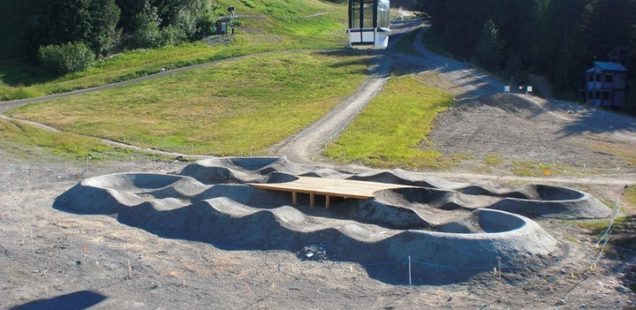
Best Pump Track Bike Setup
There are numerous guides out there on how to ride a pump track, but they always fall short when it comes down to the best pump track bike setup. While pump tracks are versatile and allow all sorts of bikes to ride on them, most bikes are less than optimal for the pump track. Through this post I will explain to you what makes the best pump track bike and what you can do to improve the setup of your current bike.
What is a Pump Track?
Firstly, what is a pump track and why to people ride them?
A pump track is a continuous loop of “berms” and “rollers” (mounts) that is designed to be ridden without pedalling. The name “pump track” comes from the motion used by the rider’s body as they ride around the track. By using this pumping motion, riders are able to maintain their speed around the pump track without pedalling.
As far as mountain biking goes, it’s quite safe. Even though you aren’t pedalling, it’s highly tiring and great training for other MTB disciplines as it is a full body workout. Of course like all things on two wheels it’s a load of fun, especially if you have friends to race with on the pump track. If you want more info on pump tracks, I really recommend reading Welcome To Pump Track Nation.
What is the Best Pump Track Bike?
The nature of “pumping” around a track means you are pushing a lot of energy through your bike and into the ground. As a result, you want a bike that isn’t going to suck that energy out of your “pump”. This means as little suspension and as lightweight as possible.
In the perfect world, the best pump track bike setup uses:
- 4x/DJ/BMX frame
- rigid or short travel fork setup firm
- low centre of gravity
- strong but light 26″ wheels or smaller, ideally a single speed wheelset
- slammed saddle
- lightweight components
- fast rolling tires with 50+ PSI
- short stem/close cockpit
- rear brake
- flat platform pedals
- 1x drivetrain or single speed conversion
If you aren’t using a derailleur, check out our guide on single speed mountain bike frames for more info on what to consider.
Custom Pump Track Bike Setups
Specialized Stumppumper – the best pump track bike
The perfect example of a bike that was custom built for the pump track is the Specialized Stumppumper. The Stumppumper was built by using a Specialized P.3 and changing components to lightweight alternatives such as a rigid carbon fork, carbon crankset and light wheels. By using an “offset bottom bracket”, Specialized were able drop the centre of gravity even lower than the standard height. This allows the rider to carry more speed through the pump track’s rollers and berms. All of these features combined makes the Specialized Stumppumper the best pump track bike I have ever seen.
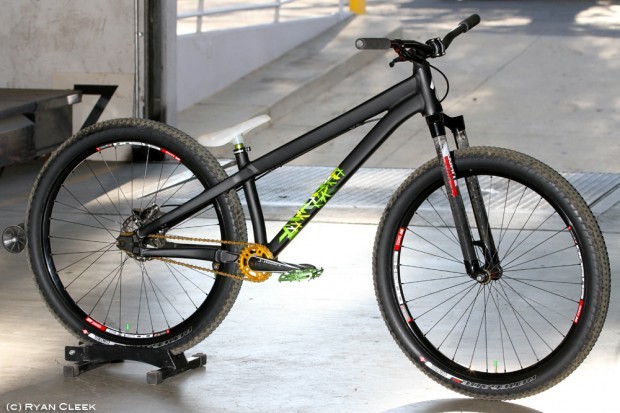
Specialized Stumppumper Custom Pump Track Bike Setup Photo: Ryan Cleek
Transition Bank – my custom pump track bike
Purchased for my wife in 2011, our Transition Bank has become our sole pump track bike. It’s received loads of “hand-me-down upgrades” from our other bikes over the years. I run a Fox 831 air fork up front that is mostly rigid but gives enough to save you when casing jumps. Carbon SRAM X0 cranks dropped weight from the boat anchor Truvativ Holzfellers that came on the bike. Spank Spike Race28 wheels and platform pedals are the perfect mix of light and durable without going overboard. A no-rise 50mm stem and 720mm bars keep my weight back and low without going overboard. Fast rolling Maxxis Crossmark tires run around 65psi, with a 2.3″ up front and 2.1″ rear. The Bank is setup singlespeed with a RaceFace Narrow Wide Chainring and lightweight XKM Chainring spider. A rear only Avid Elixir CR brake helps me to skid like a pro (kidding).
Planned upgrades include a lighter/thinner ANVL saddle, lighter weight stem, lighter Spank Oozy pedals and possibly tubeless. I’m loving this thing – it has to be one of the best pump track bikes I have seen in person.
Tweak your Current Bike Setup for the Pump Track
Of course not all of us can justify owning a custom bike pump track bike. There are a lot of things that you can to do make your current bike more suited to the pump track. Firstly, start with the most adequate bike you can. That means choosing your hardtail over the dual suspension, or the sloping dual suspension frame that keeps your weight low over your 29er race hardtail. If you have a BMX, use it. Pump track bikes are mostly custom, but to build the best pump track bike you need to start with the most suitable bike possible.
From here, you can setup your bike for the pump track by:
- Adding air pressure, increased compression or lockout to your front and rear suspension
- Adding additional air pressure to your tires
- Lowering the saddle
- Removing the front brake (so long as you are comfortable with this)
Some affordable changes to make your bike more pump track friendly include:
- Light, fast rolling tires such as Maxxis Crossmark or Kenda Small Block 8’s
- A shorter stem
- Converting your bike to singlespeed or a single chainring drivetrain
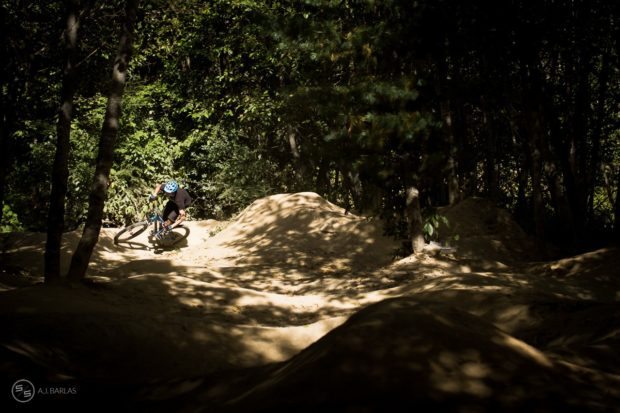
Bike setup makes all the difference at the pump track Photo: AJ Barlas
Get Stoked on Pump Tracks!
Possibly the most necessary step in the process. Watch a video, wrench on your bike and start digging a pump track in your backyard or help maintain the local track. Pump track sessions will improve your fitness, bike control and mental health!
If you want more info on pump track bike setup, digging pump tracks or just want to talk bikes, add a comment or hit me up on Twitter, Instagram or Facebook.
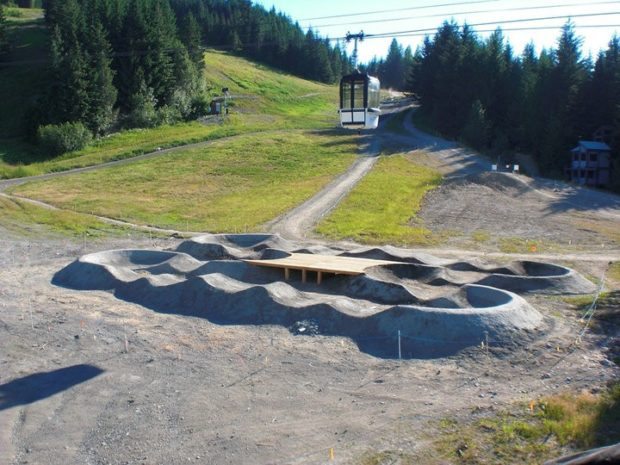

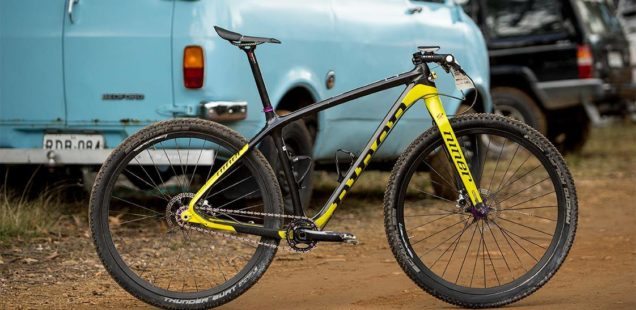
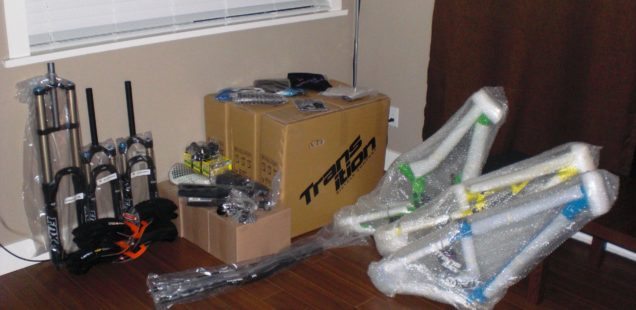
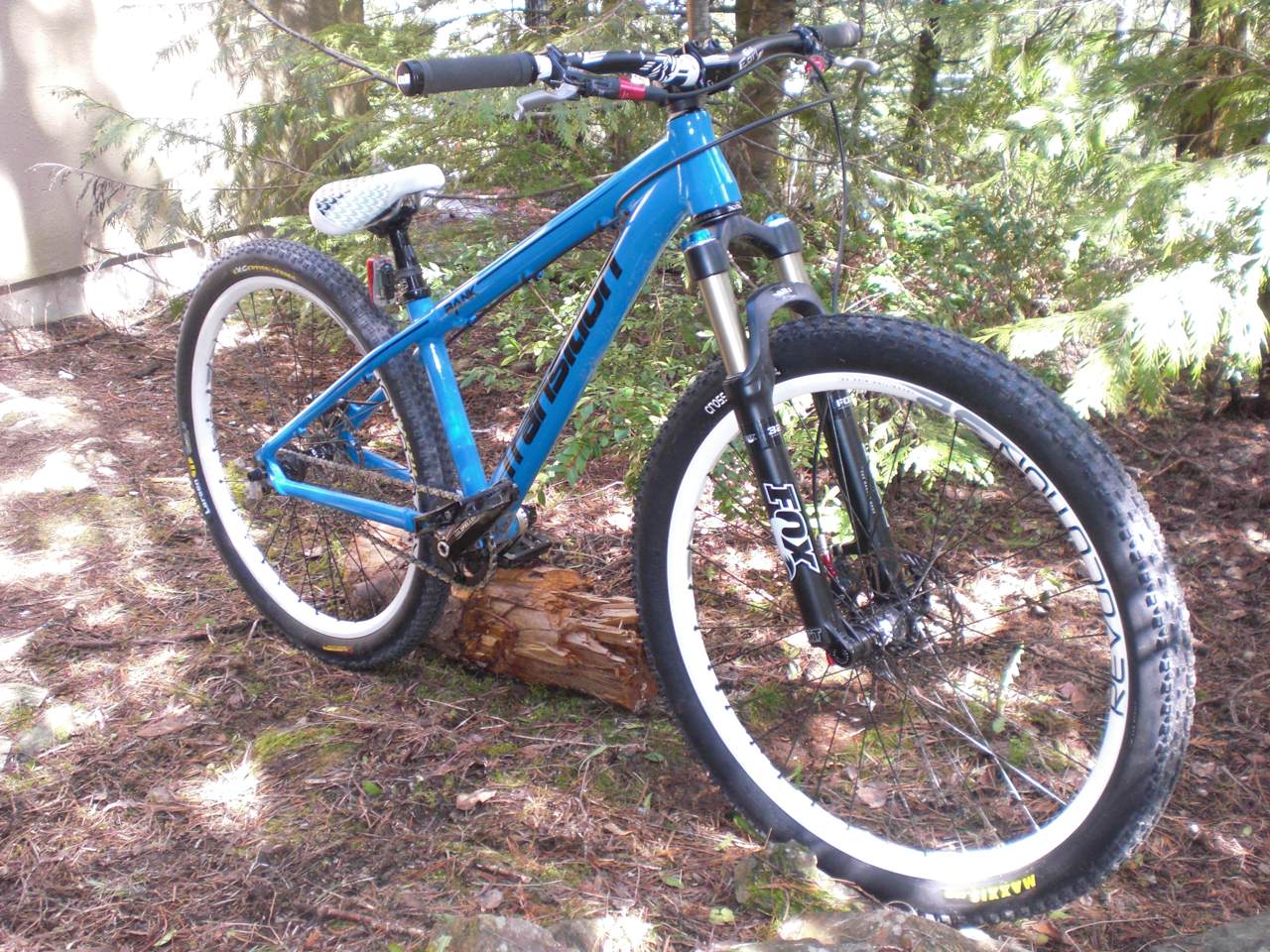

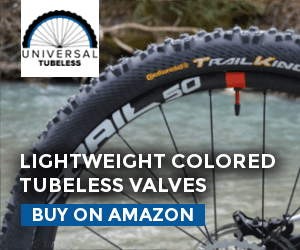
[…] hub while allowing you to use a cheaper standard hub. I have been using eccentric dropouts on my Transition Bank pump track bike for around 4 years now and they are yet to […]
[…] on high-end dirt jumpers, the best pump track bikes, cross country and all-mountain single speed bikes, disc single speed cassette hubs feature a […]